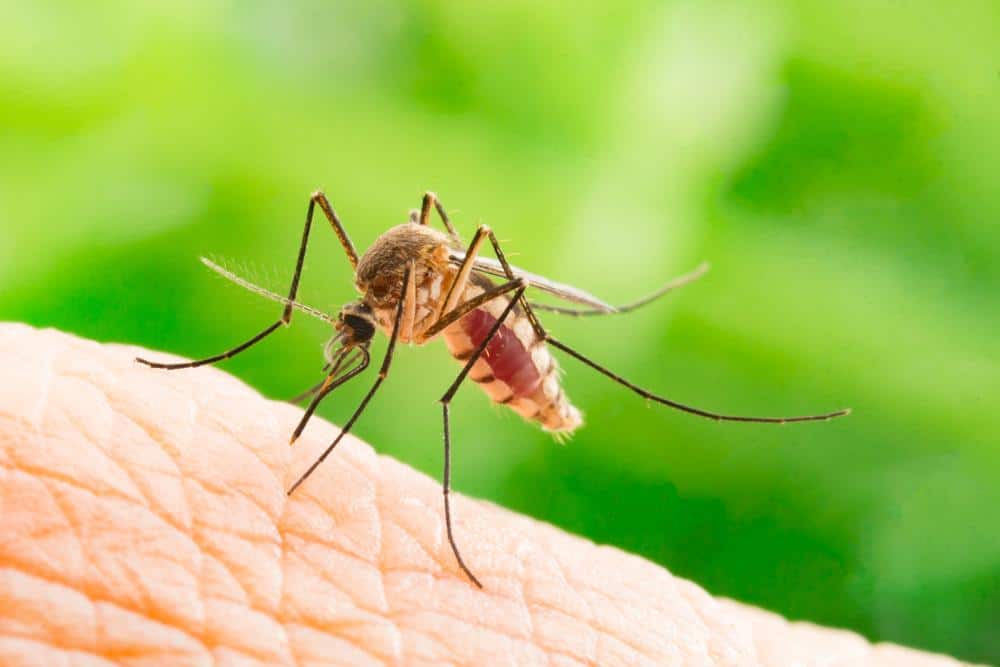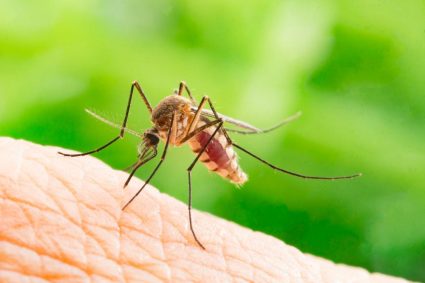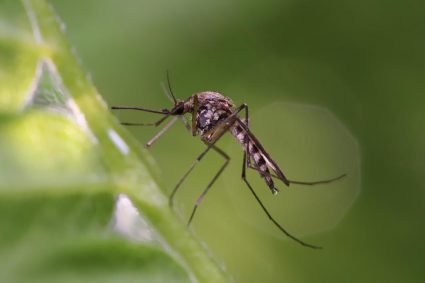
Sodium Chloride, commonly known as table salt, is a chemical compound that we use in our day-to-day lives. But have you ever wondered if this common household substance can kill mosquitoes? Let’s dive deep into the subject and find out.
Sodium Chloride, or table salt, in certain concentrations can have some effects on mosquito larvae and oviposition behavior. However, it does not effectively kill or repel adult mosquitoes. Therefore, it is not considered a reliable method for controlling mosquito populations.
What is Sodium Chloride?
Sodium Chloride (NaCl) is an ionic compound with the chemical formula NaCl, representing a 1:1 ratio of sodium and chloride ions. It is the salt most responsible for the salinity of seawater and the extracellular fluid of many multicellular organisms. It is commonly used as a condiment, a food preservative, in medical treatments, industrial processes, and water softening.
Sodium Chloride and Mosquitoes: The Connection
There have been claims that sodium chloride can kill mosquitoes, but how accurate are these claims? Let’s explore the scientific research available on this topic.
Research has shown that Sodium Chloride, in certain concentrations, can have some effects on mosquito larvae and oviposition behavior. For example, a study found that sodium chloride concentrations of 1.0% or higher can be toxic to Aedes albopictus larvae. Another study showed that sodium chloride concentrations above 0.5% can act as an oviposition repellent for Aedes albopictus females.
However, the same research suggests that Sodium Chloride is not a reliable method for controlling adult mosquito populations. In fact, a study conducted across five locations using nine species of mosquitoes found no evidence that adult mosquitoes are killed by salt ingested at concentrations used in several popular mosquito-control products.
Sodium Chloride as a Mosquito Control Method
While Sodium Chloride may have some effects on mosquito oviposition behavior and larval development, it is generally not considered an effective method for mosquito control. This is due to the fact that adult mosquitoes have physiological mechanisms that allow them to deal with excess salt from blood meals.
Moreover, relying on an ineffective method like sodium chloride could indirectly increase the risk of mosquito-borne diseases due to inadequate mosquito control.
Comparing Sodium Chloride to Other Mosquito Control Methods
If we compare Sodium Chloride to other common mosquito control methods, such as insecticide spraying, biological control, or environmental control, it falls short in terms of effectiveness. These alternative methods have varying degrees of effectiveness, cost, and environmental impact, but they are generally more reliable than sodium chloride.
For example, the World Mosquito Program’s Wolbachia method is self-sustaining, relatively inexpensive, and has been demonstrated to reduce the risk of mosquito-borne diseases.
Sodium Chloride as a Mosquito Repellent
While Sodium Chloride has shown some potential as an oviposition repellent for Aedes albopictus females, it does not directly repel adult mosquitoes or effectively kill them.
Conclusion
In conclusion, while Sodium Chloride has some minor effects on mosquito larvae and oviposition behavior, it does not effectively kill or repel adult mosquitoes. It is advisable to consider alternative, more effective methods for mosquito control to protect yourself and your environment from mosquito-borne diseases.
Frequently Asked Questions
What are some effective methods for mosquito control?
Some effective methods for mosquito control include insecticide spraying, biological control (like the introduction of natural predators), environmental control (such as removing stagnant water where mosquitoes breed), and innovative methods like the World Mosquito Program’s Wolbachia method.
What is the World Mosquito Program’s Wolbachia method?
The Wolbachia method is an innovative approach to mosquito control used by the World Mosquito Program. It involves infecting Aedes mosquitoes with the Wolbachia bacteria. The bacteria reduces the mosquito’s ability to transmit viruses like dengue, Zika, chikungunya and yellow fever to people. This method is self-sustaining and relatively inexpensive.
What is oviposition behavior in mosquitoes?
Oviposition behavior in mosquitoes refers to the behavior associated with laying eggs. Factors such as the presence of water and certain chemical substances can influence where a female mosquito chooses to lay her eggs.
Why is Sodium Chloride not effective in killing adult mosquitoes?
Adult mosquitoes have physiological mechanisms that allow them to deal with excess salt from blood meals. Therefore, Sodium Chloride is not effective in killing adult mosquitoes.
Can Sodium Chloride be used as a home remedy for mosquito control?
While Sodium Chloride has shown some minor effects on mosquito larvae and oviposition behavior, it is not a reliable or effective method for controlling adult mosquito populations. It’s recommended to use proven methods for mosquito control.










